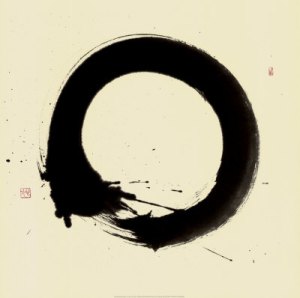 “In the beginner’s mind there are many possibilities; in the expert’s mind there are few.” – Shunryu Suzuki
“In the beginner’s mind there are many possibilities; in the expert’s mind there are few.” – Shunryu Suzuki
We live a stone’s throw from the university, all the signs of the new semester are upon us. Freshmen are moving into the dorms and are perusing the campus with a mix of excitement and nervousness, ready to take their first hesitant steps as adults. The band is rehearsing in the quad alongside the cheerleaders, who are practicing their routines to the music in preparation for the first home football game. In my own little world, I am revamping syllabi, rearranging desks, and getting ready for my first day back to school since starting my maternity leave nearly six months ago.
To quote one of my favorite shows, “Battlestar Gallactica,” “All of this has happened before, and it will all happen again.” Every year, the freshman come. Every year, I prepare for the upcoming semester. Living this kind of cyclical, repetitive life, it can be easy to become complacent, or bored, or even haughty. It’s easy to say, “I know how to do this,” or, “I know how this is going to play out.” And when that happens, when we become such experts that nothing is new or exciting anymore, that’s when the repetitive becomes dull, and life becomes nothing more than a boring series of events that are bound to happen again and again.
When life verges on the repetitive, it’s useful to turn to Zen master Shunryu Suzuki. In his beautiful masterpiece Zen Mind, Beginner’s Mind, Suzuki urges us to retain our original mind, the mind of a beginner, which is already rich and sufficient. A beginner’s mind is always open, always ready to learn, always unlimited. If we want to learn anything, we have to rid ourselves of our preconceived notions and be open to any possibilities. I must become that hesitant freshman once again. I must be that first-year teacher, unsure of what lies ahead of me. I must be a willing learning, not a jaded expert.
One of my favorite Zen stories runs along these lines. It’s called “A Cup of Tea”:
Nan-in, a Japanese master during the Meiji era (1868-1912), received a university professor who came to inquire about Zen. Nan-in served tea. He poured his visitor’s cup full, and then kept on pouring. The professor watched the overflow until he no longer could restrain himself. “It is overfull. No more will go in!” “Like this cup,” Nan-in said, “you are full of your own opinions and speculations. How can I show you Zen unless you first empty your cup?”
As I begin this new semester, I will take the time to empty my cup. As I step on my mat for yoga practice each day, I will empty my cup. I will embrace my beginner’s mind, and I will emerge all the richer for my practices.
Happy first day of school, everyone.

I realized that I have that book, sitting on my night-stand, dusty and unread.
Thank you. I’m going to send the dust flying and crack ‘er open…and when I practice I’m going to try to embrace that beginner’s mind. As a new yoga instructor, I feel very small and humble in the classroom, but in my practice I have lost that sense of newness and wonderment.
Looking forward to a renewed perspective!
Namaste!
Love the Zen story! It’s Spring in south Africa at the moment so I found your post very fitting. I find my beginners mind is most alert when surrounded by nature. Finding a little piece of nature in an urban environment especially helps me remember to open my eyes and SEE the world around me not just LOOK at it. Thank you for the reminder!